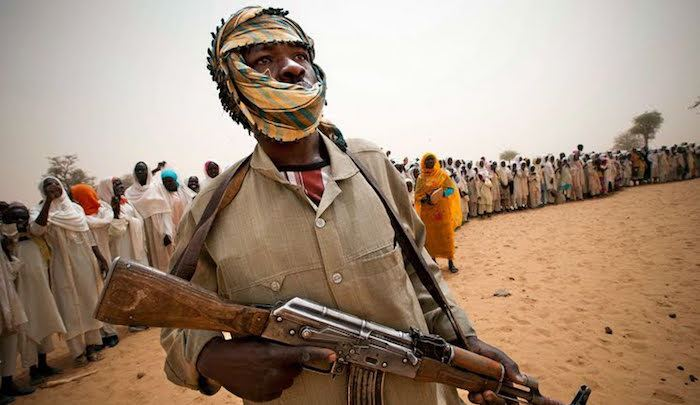Midnight Chaos at Bengaluru Airport: Taxi Driver Arrest Sparks Tense Standoff
- Mahamunimodi Team
- 4 days ago
- 4 min read

In the early hours of November 16, a tense and potentially dangerous situation unfolded at Bengaluru’s Kempegowda International Airport, sending shockwaves through one of India’s busiest travel hubs. A taxi driver, identified as 36-year-old Suhail Ahmed Pyarejaan from Jayanagar, suddenly began sprinting across the pickup zone near Terminal 1 while wielding a long knife. Eyewitnesses recalled scenes of chaos as Suhail appeared to chase two other taxi drivers—Jagadeesh J. R. and Renu Kumar—across the arrival area. The alarming episode was captured on high-resolution VVIP CCTV cameras, footage that the Central Industrial Security Force (CISF) later released. The video shows Suhail lunging aggressively toward the two men while brandishing the blade, causing widespread panic among passengers, staff, and bystanders.
CISF personnel, led by Assistant Sub-Inspector (ASI) Sunil Kumar, reacted with remarkable speed. Within moments of the chase unfolding, officers intervened, subdued Suhail, and wrested the knife from his hands. Their swift action prevented what could easily have become a deadly confrontation. After detaining Suhail and securing the area, the CISF handed over the accused and the other involved drivers to the Kempegowda airport police. A case has been formally registered, and investigations are underway.
According to initial police assessments, the incident does not appear to be linked to any organized terror activity. However, authorities emphasized that the attack could have resulted in serious or fatal injuries, prompting Suhail’s arrest under the Arms Act. He has since been remanded to judicial custody as further inquiries continue.
What has heightened public concern is the timing. The knife attack comes just days after a major security scare in New Delhi—a bomb blast that has once again brought national attention to vulnerabilities in public spaces. While the Bengaluru airport incident may not have been driven by terror motivations, the sudden escalation into a weapon-wielding chase inside a major international airport underscores how exposed such spaces remain. Airports, train stations, and other transport hubs have long been recognized as prime targets for jihadist violence worldwide, making even isolated acts of aggression trigger broader anxieties.
Indeed, knife attacks in other countries have often carried far graver consequences, sometimes unfolding explicitly as terror operations. On November 29, 2019, London witnessed one of its most horrifying stabbing sprees when Usman Khan—a convicted terrorist released on license—launched an attack during a rehabilitation program at Fishmongers’ Hall, near London Bridge. Armed with two knives taped to his wrists and wearing a fake suicide vest, he killed two young Cambridge graduates, Jack Merritt and Saskia Jones. The attack ended only after civilians bravely pinned him down and armed police shot him. In 2017, London Bridge was again the site of terror when Khuram Butt, Rachid Redouane, and Youssef Zaghba rammed a van into pedestrians before carrying out a brutal stabbing rampage in Borough Market. Likewise, in Nice, France, on October 29, 2020, Tunisian national Brahim Aouissaoui murdered three people inside the Notre-Dame basilica in a gruesome jihad-motivated attack. The sheer consistency with which such incidents have recurred globally—and the familiar backgrounds of the perpetrators—have long raised concerns among security observers.
These patterns reveal a troubling reality: whether a meticulously orchestrated terror plot or a sudden burst of rage, many such attackers appear ready to seize a weapon and wreak havoc in public spaces with chilling ease and determination. The ideological commonality that threads through many of these cases only deepens the unease.
Closer to home, Bengaluru’s airport scare adds to a growing list of security concerns in a city that serves as India’s largest technology hub. Over recent years, authorities have increasingly flagged the city as vulnerable to radicalized modules and lone-wolf threats. A stark reminder came on March 1, 2024, when an improvised explosive device detonated inside the bustling Rameshwaram Café in Whitefield during lunch hours. The explosion injured several people, and the National Investigation Agency (NIA) later tied the attack to an ISIS-inspired module, arresting individuals including Mussavir Hussain Shazib and Abdul Mateen. Even informal leisure spaces, once thought safe, have now been shown to be potential targets for extremist activity.
Against this backdrop, the knife incident at the airport has heightened public unease, especially given Karnataka’s current political climate under a Congress-led government. The Congress Party has long been criticized for its overt minority appeasement strategies aimed at consolidating Muslim vote banks. Earlier this year, the government stirred controversy by reportedly considering a Muslim quota in government tenders—an unprecedented move that triggered heated debate. In neighboring Telangana, Chief Minister Revanth Reddy recently ignited political outrage with the statement, “Muslims mean Congress, and Congress means Muslims,” a remark many viewed as openly communal and deeply polarizing.
Such rhetoric, critics argue, emboldens radical elements who interpret political pandering as a signal of administrative softness. When leaders prioritize vote-bank calculations over stringent law enforcement, extremist elements may feel an increased sense of impunity, believing that their actions will be shielded by political sensitivities. This creates an environment where ordinary citizens feel increasingly unsafe, and law-and-order stability becomes harder to maintain.
This challenge is not unique to India. Across the world, governments that indulge heavily in identity-group politics—particularly appeasement of radicalized segments within Muslim communities—have found it difficult to curb jihadist activity effectively. The pattern repeats itself in city after city, from London to Paris to Brussels, where political compromise has often been exploited by extremist groups operating under the radar.
The Bengaluru airport episode, though contained quickly, serves as a sobering reminder. It illustrates how even a single individual armed with a knife can momentarily shake the sense of security in a major metropolitan center. As India grapples with rising urban vulnerabilities, the incident reinforces an urgent need for vigilant policing, depoliticized security policies, and an uncompromising stance toward potential extremist threats—regardless of the political cost.



Comments